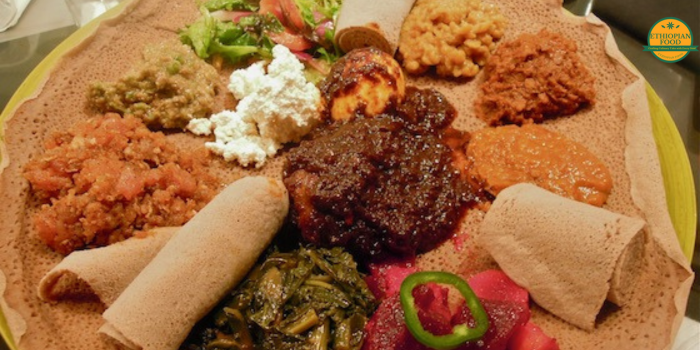When it comes to cuisine from around the world, Ethiopian Food stands out as being particularly wholesome and nutritious. This East African country’s traditional foods are not only delicious but also packed with health benefits that make them an excellent choice for those seeking a balanced and nutritious diet. There are lots of queries regarding Is Ethiopian Food Healthy or Not.In this blog You will get all the answer related to the Ethiopian food is Healthy or not.
Plant-Based
One of the most remarkable aspects of Healthy Ethiopian Food is emphasis on plant-based ingredients. Many traditional dishes are naturally vegan or can be easily adapted to be so. For instance, the popular stew known as shiro is made from ground chickpeas or lentils, providing a rich source of plant-based protein, fiber, and essential nutrients.
Injera
The iconic spongy flatbread that serves as both a utensil and an accompaniment, is made from teff, an ancient grain that’s high in fiber, protein, and essential minerals like iron and calcium. This nutritious bread is often used to scoop up flavorful vegetable dishes like gomen (collard greens) and fosolia (string beans and carrots).

Spices and Herbs Galore
Ethiopian cuisine is renowned for its unique blend of spices and herbs, which not only add incredible flavor but also provide numerous health benefits. The berbere spice blend, a staple in many Ethiopian dishes, contains a mixture of chili peppers, garlic, ginger, and spices like cumin and coriander, all of which have anti-inflammatory and antioxidant properties.
Niter kibbeh
A clarified butter infused with herbs and spices, is another essential ingredient that adds depth of flavor and beneficial compounds to Healthy Ethiopian food. Many of the herbs used, such as rue, Bishop’s weed, and nigella seeds, are known for their medicinal properties and have been used in traditional Ethiopian medicine for centuries.
Balanced and Nutritious

Ethiopian Food strikes a perfect balance between protein, carbohydrates, and vegetables, making it a well-rounded and Ethiopian Food Healthy. Dishes like doro wat (chicken stew) and siga wat (beef stew) provide high-quality protein, while injera and occasional servings of rice or potatoes offer complex carbohydrates.
Additionally, the abundance of vegetable dishes, such as gomen (collard greens), atkilt (a mixture of cabbage, potatoes, and carrots), and fosolia (string beans and carrots), ensures a good intake of essential vitamins, minerals, and fiber.
Communal Eating Experience
Beyond the nutritional benefits, the communal nature of Healthy Ethiopian Food also contributes to the overall healthiness of the cuisine. Dishes are typically served on a large platter, and diners use torn pieces of injera to scoop up the various stews and vegetable dishes. This sharing aspect promotes mindful eating and can help individuals develop a more positive relationship with food.
FAQS
Is Eating Ethiopian Food Healthy?
Yes, eating Ethiopian food is generally considered healthy due to its emphasis on plant-based ingredients, whole grains, lean proteins, and flavorful spices and herbs.
Is Ethiopian Injera Good?
Yes, Ethiopian injera is an exceptionally good and nutritious fermented flatbread made from the nutrient-dense teff grain.
Is Ethiopian cuisine similar to Indian?
No, Ethiopian cuisine is quite distinct and different from Indian cuisine in terms of ingredients, spice blends, and cooking techniques.
Does Ethiopian food have a lot of fat?
No, traditional Ethiopian food does not generally have a lot of fat.
Conclusion
With its emphasis on plant-based ingredients, nutrient-dense grains, and flavorful spices and herbs, Ethiopian food healthy and wholesome choice. Its balanced combination of proteins, complex carbohydrates, and vegetables, coupled with the communal eating experience, makes it a nutritious and culturally rich culinary tradition that should be celebrated and enjoyed.

